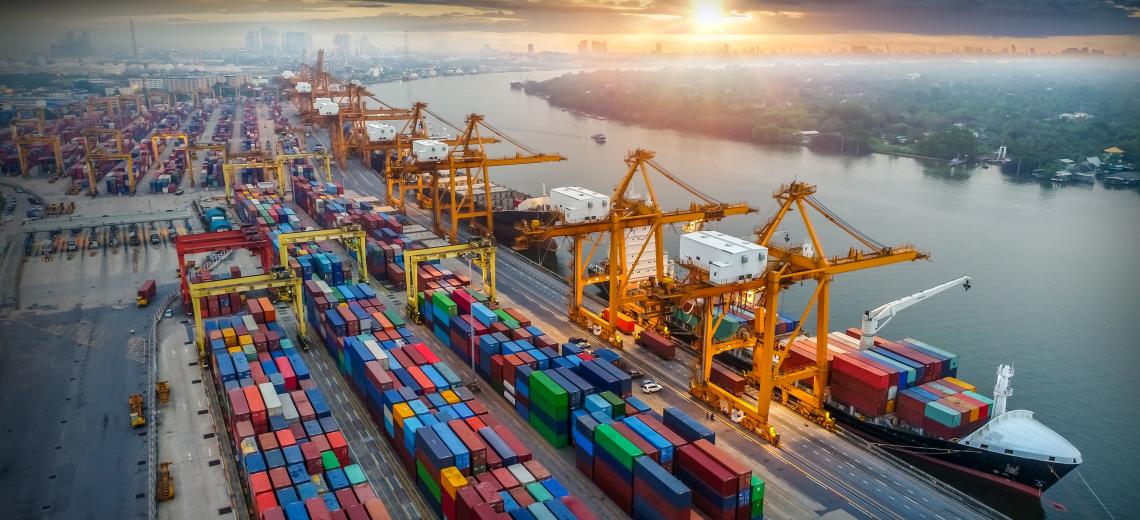
Most of us have grown familiar with the term globalisation – the increasing integration of the world’s economies through technology, trade and investment.
But what about its lesser-known counterpart: ‘deglobalisation’? This phenomenon is far less widely understood and describes a drastic scenario where countries reduce their international activity and multinational firms swiftly retreat to their home markets, cutting back exports and investments.
Some experts see the recent rise of US protectionism as proof the world is unravelling its economic ties. But Associate Professor Pierre van der Eng, from The Australian National University (ANU) College of Business and Economics (CBE), argues there is no conclusive evidence that the interdependence of the global economy is in decline.
While there are isolated cases of firms withdrawing from global markets, Pierre cautions against treating them as proof of a systemic reversal.
“Deglobalisation is a grey area. Individual companies assess external challenges in different ways, so even if multinationals are all operating in the same country through the same processes, they may still perceive changes and the imperatives for change in different ways,” he says.
His latest study, a historical analysis of the behaviour of multinational enterprises in Australia during the 20th century, suggests the effects of deglobalisation are neither swift nor dramatic.
Examining the activities of foreign firms between 1914 and 1979, identified by Harvard Business School’s Professor Geoff Jones as a period of deglobalisation, Pierre and his co-authors found no compelling evidence that multinationals reduced their operations, scaled back investments, or abandoned expansion plans.
Instead, the data revealed the number of foreign-owned companies and their investments in Australia continued to rise – from 537 in 1920 to 1,327 by 1960.

“The findings of our study weren’t a surprise for us. Through our previous research in Australia, we know foreign companies invest time and effort into building up their presence and accumulating knowledge of the host country. Therefore, it is almost unthinkable that they would abruptly retreat because someone says there’s deglobalisation happening,” Pierre says.
The CBE business historian explains that, in response to global economic challenges, companies are more likely to adapt than abandon their hard-won international presence.
This, though, can take time and is highly dependent on the strategy each company adopts.
To understand more about the historical decisions and processes of foreign firms in Australia, Pierre and his team researched three foreign multinationals with different characteristics: the wool broker Dalgety, the banks that became ANZ, and the vehicle manufacturer Ford.
While all three weathered the challenges of deglobalisation by deepening their local engagement and shifting some strategic control to the subsidiary, the study found the pace and form of their responses diverged.
“We observed significant differences in how companies operating in the same country responded to challenges in the global economy. The example of Dalgety highlights the benefits of a flexible response, allowing subsidiaries to address localised issues that threatened the viability of the business,” Pierre says.
“Conversely, ANZ and Ford were more constrained by their global strategy, run centrally from headquarters, which ignored local experience and knowledge for a much longer period of time.
“This shows the administrative legacy of each multinational impacts the speed of the process by which they come to the realisation that it is necessary to respond to deglobalisation conditions.”
All in all, Pierre’s research offers a counterpoint to the popular narrative of deglobalisation as a process with rapid and extraordinary consequences.
“When the world turns inward, most firms do not flee; instead, they become more embedded in their host economies – deepening local engagement as a way to survive global uncertainty,” he says.
Are Trump’s tariffs heralding the end of globalisation?
Earlier this year, Apple announced it would shift part of its iPhone assembly from China to India. This move was viewed as a response to escalating trade tensions between the administrations of President Donald Trump and President Xi Jimping.
Ideological differences between countries combined with major disruptions to global supply chains, such as the conflicts in Ukraine and the Middle East, have fuelled speculation that governments and corporations are rethinking their external dependencies and looking closer to home.
But, while the rhetoric on deglobalisation is seemingly taking hold, Pierre remains sceptical.
“If you read the news, you’ll see that the rest of the world is still largely driven by all kinds of multilateral and bilateral agreements to facilitate international trade and investment to a greater degree,” he says.
“We also shouldn’t forget about COVID, which had a significant impact on international supply chains. It is a reason why international trade has slowed down, but it has not decreased.”
He warns that US trade policy –especially tariffs –can distort the narrative.
“The tariff policies of the United States impact the world’s relations with the US and vice versa, not the interactions of companies in the rest of the world.”
“Our research speaks to colleagues in international business and management who, based on broad indicators, are rushing to draw conclusions about deglobalisation –assuming companies will immediately retreat from certain countries in response.”
Pierre emphasises that companies need time to absorb and assess external shocks before making major decisions.
“They don’t decide from one day to the other to withdraw,” he says.
“In practice, every firm responds differently based on their own assessment of the situation. Some will be fast in drawing conclusions; others will be slow. It all comes down to where decision-making power sits: inside a multinational’s headquarters or locally.”
The College is always keen to explore research collaborations with the public and private sector and to reconnect with alumni. Please get in touch if you would like to know more about partnering with us.
